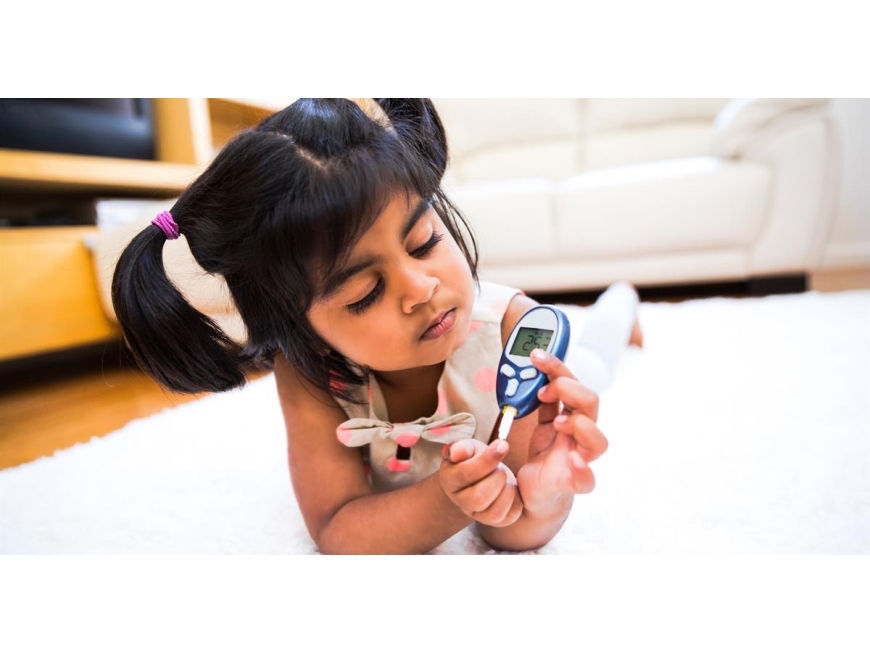
*DIABETES IN CHILDREN: WHAT ARE THE MAIN CAUSES? *
Diabetes is a chronic condition that can occur at any age, even in a kid's first year of life.
Diabetes being a metabolic disorder impacts the blood sugar (blood glucose or glucose) levels in a human's body. The cells in your body need energy that is usually obtained from blood sugar. The carbohydrates in the food you eat are broken down into glucose, which is then used as a fuel by your body.
The job of converting glucose into energy is of a hormone called insulin. This insulin, produced by an organ behind the stomach called pancreas, supplies the glucose in the blood to the cells. The body of people with diabetes isn't able to convert glucose into energy. This happens because either the body doesn’t produce enough insulin or the produced insulin doesn’t work the way it should, leading the sugar to stay in the blood. This, in turn, leads to increase in blood sugar levels, which can cause health problems if they remain high for long.
Diabetes can't be cured, but it can be managed. If your child is diagnosed with diabetes, you can take certain steps to manage it, helping your kid to lead a happy and healthy life.
What causes diabetes in toddlers
The cause or causes of diabetes in children and toddlers is unknown.
The exact cause of type 1 diabetes is unknown. But in most people with type 1 diabetes, the body's immune system — which normally fights harmful bacteria and viruses — mistakenly destroys insulin-producing (islet) cells in the pancreas. Genetics and environmental factors appear to play a role in this process.
Once the islet cells of the pancreas are destroyed, your child produces little or no insulin. Insulin performs the critical job of moving sugar (glucose) from the bloodstream to the body's cells for energy.
Sugar enters the bloodstream when food is digested. Without enough insulin, sugar builds up in your child's bloodstream. This can cause life-threatening complications if left untreated.
* Type 1 diabetes: This type of diabetes usually occurs in kids whose immune system – which usually fights viruses and harmful bacteria – destroys the insulin-producing cells in the pancreas. Although why this happens is not well understood, we do know that it’s not caused by your or your child’s diet or lifestyle. Experts believe that genetics or environmental factors, like exposure to viruses that trigger this autoimmune response, could be responsible.
* Type 2 diabetes: This form of diabetes is more common in adults, but rarely it can appear in children, too. Type 2 diabetes may also be linked to family history and genetics, but a sedentary lifestyle and excess fat, especially in the belly area, can also play a role.
What Are the Warning Signs of Diabetes in Kids?
Some of the diabetes symptoms in children are similar to things that can happen in everyday life – like increased thirst on a hot day.
The symptoms of type 1 diabetes (the kind that most often affects babies or young children) can develop quickly – within a few days or weeks.
Children with type 1 diabetes are at risk of other autoimmune disorders, such as thyroid disease and celiac disease. Your child's health care provider may recommend tests for these conditions.







-100x125.jpeg)
-100x125.jpeg)
-100x125.jpeg)

-100x125.jpeg)
-100x125.jpeg)
-100x125.jpeg)
Write a comment